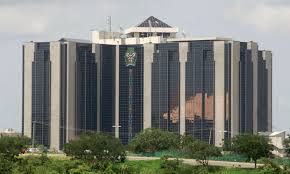
CBN/MPC: Tackling Inflation with Bold Decisions, by Abdulrahman Abdulraheem
For a country struggling with youth unemployment, poverty and other social issues and whose Gross National Income (GNI) per capita is just a little above $2000, any increase in the prices of goods, general hike in the cost of living and/or reduction in purchasing power will only worsen the pressure people are already facing. And this comes with its attendant consequences – possible mass insurrection or likely spontaneous rebellion.
This is why no serious government will take inflation figures lightly especially when they are on the increase. The Central Bank of Nigeria (CBN) has in the last few months placed inflation on top of the list of the issues it has to tackle in order to right every wrong in the monetary side of the economy.
Measured using the Consumer Price Index (CPI), inflation is at the core of unnecessary or avoidable increase in the cost of goods and services and general hike in cost of living. Most worryingly, inflation affects people’s purchasing power and make their money useless.
Inflation has been an upward swing in recent months. Domestic headline inflation rose year-on-year (YoY) by 1.8 percentage further to 31.70 per cent in February 2024
from 29.90 per cent in January.
In the same month, food inflation accelerated to 37.92 per cent from 35.41 per cent, while core inflation rose to 25.13 per cent from 23.59 percent, according to the National Bureau of Statistics (NBS).
This represents the highest level of inflation recorded in 28 years.
This data also underscores a concerning trend, suggesting that the pace at which average prices escalated in February 2024 surpassed the rate of price increase observed in January 2024.
IMF Prediction
The International Monetary Fund (IMF) however recently predicted a decline in Nigeria’s inflation rate to 23 percent in 2024 and 15.5 percent in 2025.
Reacting to the foreign exchange reforms introduced by the Olayemi Cardoso-led CBN to curb inflation and the free fall of the Naira, IMF division chief of research department, Daniel Leigh, said the monetary tightening stance of the apex bank would help reduce inflation rate.
Speaking at the IMF’s World Economic Outlook (WEO) update press conference in January, Leigh said one of the drivers of inflation is the weak Naira.
“Now there are also structural factors behind that high inflation, including, you know, on the fiscal side, financing of the deficit. But this is clearly creating hardship. So, bringing down inflation is top priority.
And Central Bank of Nigeria has already raised interest rates significantly over the past year to 18.8 percent. So, that is the monetary tightening that is helping in our forecast to bring inflation down from 24.6 percent in 2023, to 23 percent this year, and then closer to single digits into 2025 at 15.5 percent,” he added.
He said while the monetary tightening to conquer inflation is ongoing, Nigeria should prioritise revenue mobilisation, and widen its tax base to provide social support.
“But on top of conquering inflation through monetary tightening, there’s also a need to provide social support through the budget and creating the space for that is the challenge,” Leigh said.
“Our perspective is that more revenue mobilisation, strengthening revenue administration, widening the tax base, this is what is going to bring in space for development spending while safeguarding fiscal sustainability,” he concluded.
CBN Action
Knowing full well that one of the drivers of inflation is the free fall of the Naira, Governor Cardoso has repeatedly argued that the national currency is undervalued.
He has also assured that, combined with coordinated measures on the fiscal side, the apex bank accelerates genuine price discovery in the near term.
The CBN under Cardoso has reverted to the conventional monetary policy approach with a focus on achieving price stability, which fosters sustainable economic growth.
According to Cardoso, the apex bank aims to rein-in inflation to 21.4 percent in 2024.
In line with this vision therefore, the Monetary Policy Committee (MPC), chaired by Governor Cardoso, held its 294th meeting on the 25th and 26th of March 2024 and took the following bold decisions:
1. Raised the MPR by 200 basis points to 24.75 per cent from 22.75 per cent.
2. Adjusted the asymmetric corridor around the MPR to +100/-300 basis points
3. Retained the Cash Reserve Ratio of Deposit Money Banks at 45.0 per cent.
4. Adjusted the Cash Reserve Ratio of Merchant Banks from 10.0 per cent to 14.0
per cent
5. Retained the Liquidity Ratio at 30.0 per cent
Considerations
According to a communiqué issued after the meeting, the considerations of the Committee at the meeting focused on the current
inflationary pressures and the need to anchor inflation expectations as well as
ensure sustained exchange rate stability.
These considerations underscore the
importance of the CBN’s commitment to the price stability mandate and the need to urgently bring inflation under control to ensure that purchasing power of ordinary Nigerians is restored in the short to medium term.
Members noted the continued rise in headline inflation, driven largely by food
prices because of supply shortages and high cost of logistics and distribution.
The Committee, therefore, was of the view that addressing food insecurity is key to containing current inflationary pressures.
Last Line
We can speak and write about all the technical jargons from morning till night, but what matters to the tomato seller in Sabo-Yaba, the onion trader in Shinkafi, the pensioner in Omuaran and the classroom teacher in Ogugu is purchasing power i.e the value of the money in their pockets.
Unlike his predecessors who were more or less elitist, Governor Cardoso, with his emphasis on restoring the purchasing power of ordinary Nigerians, has proven to be pro-masses and all his policies and ideas are pointing towards finding solutions for the people in this economic hardship.
Abdulrahman Abdulraheem is the author of “eNaira Revolution: A Peep into Nigeria’s Cashless Future”
